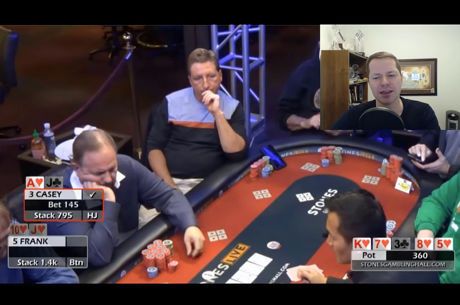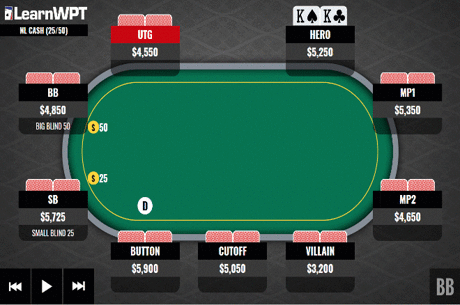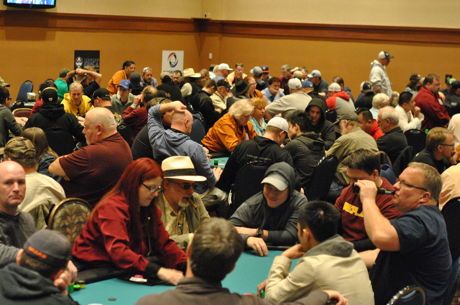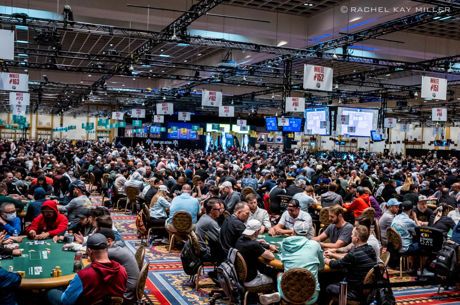5 Quick Tips to Help You Build Bigger Stacks
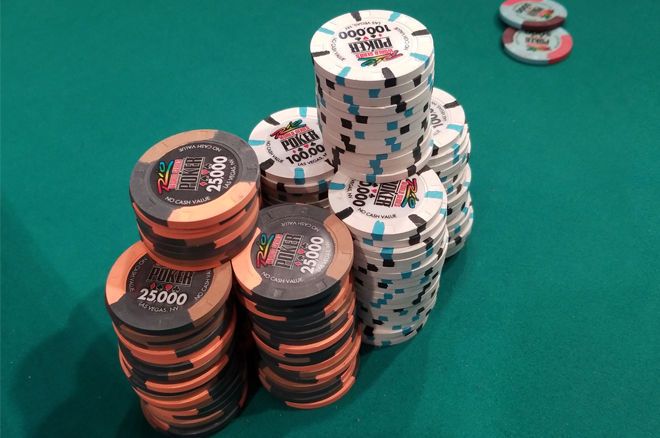
If you're looking for some quick, easy-to-remember poker tips to help you win more, you're in luck!
You're about to read 5 tactics/strategies that will make you a more profitable and confident player. Let's dive right in.
Tip #1: 3-Bet More Often
You probably know that you should 3-bet preflop to build big pots with your premium hands, such as QxQx+ and AxKx. If you only 3-bet with these hands, however, your opponents will soon catch on and start folding almost every time you 3-bet.
In order to get paid off with your premium hands, you also need to 3-bet an appropriate amount of bluffs. 3-bet bluffing allows you to balance your preflop strategy, which disguises your hand strength and makes you a lot tougher to play against.
The specific hands with which you should 3-bet bluff depend on your position, the position of the initial raiser, the raise size, and the stack sizes. Generally speaking, some of the best 3-bet bluffing hands (according to preflop solvers) include:
- Low suited aces: These should be your most frequent 3-bet bluffs because of their great playability and blocker effects.
- Suited connectors: These hands play really well post-flop when your 3-bet gets called.
- Suited gappers: Similar to suited connectors, hands like 7x5x suited or 8x6x suited work well as 3-bets because of their post-flop playability.
Note: The mid-low suited connectors/gappers (6x5x suited, 7x5x suited, etc.) are especially good 3-bets because they won't be dominated by your opponent's calling range as often as higher suited connectors/gappers (9x8x suited, Jx9x suited, etc.).
If you play low stakes, 3-betting is very powerful because many of your opponents won't be accustomed to playing versus 3-bets. This inexperience will lead to many mistakes on their part, and the benefactor of those mistakes is the 3-bettor (you).
Do Not Play Another Hand Without This $7 Tool
With such a low price tag, the $7 Postflop Game Plan is a no-brainer if you want to nail down your fundamentals...
...and build a bigger bankroll.
Tip #2: Don't Bloat the Pot with Medium-Strength Hands
Medium-strength hands should usually be played passively after the flop. If you play a hand like middle pair too aggressively, you risk forcing your opponent to fold every hand that you actually beat.
These types of hands tend to play better as bluff-catchers, as they protect the weaker hands in your range (like ace high or weak pairs). This is very helpful because your opponents will not be able to easily bluff you when you check.
The one exception to this tip is when you should bet small with a medium-strength hand to deny equity �� a more advanced concept you can learn about here.
Tip #3: Don't Change Your Bankroll Management or Study Habits When You're Winning
Every professional poker player has a friend who won big money in a tournament only to spend/lose their winnings in an avoidable way.
It's important to remember that poker is a game of peaks and troughs. To survive the troughs, you need to act responsibly during the peaks.
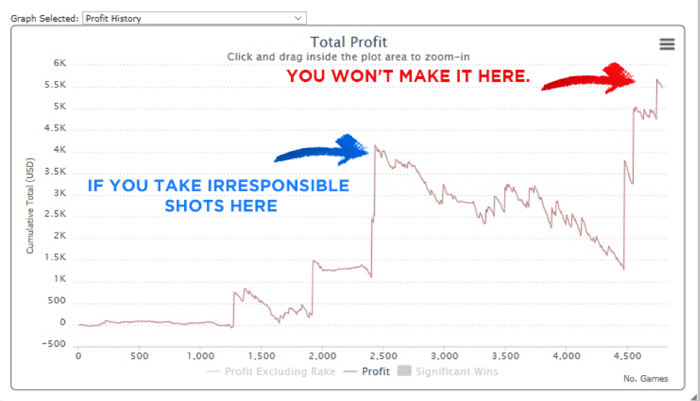
That's not to say you shouldn't celebrate, or be proud of your success. To the contrary, it's important to savor the results you work hard to achieve. Just remember that going on a heater doesn't mean you've suddenly become a poker god. Unfortunately, downswings are inevitable.
Tip #4: Lean Towards Fast-Playing Your Strong Hands
It's a sad sight when a player checks their flopped flush three times, and then has to awkwardly table their monster when their opponent checks back on the river. Slow-playing too often is a mistake common among players who are afraid of chasing their opponents out of the pot.
In most cases, it's best to fast-play your strong hands so you can build the pot and protect your equity. That's not to say you should always bet/raise your strong hands. You can slow-play your strong hands if:
- It's unlikely that you will be outdrawn.
- There aren't many scare cards that will prevent you from getting paid on later streets.
- Your opponent's range is heavily weighted toward weak hands.
However, if you ever feel uncertain, just bet. Yes, it's disappointing when your opponent folds, but that's not nearly as disappointing as getting outdrawn or missing out on potential value.
Tip #5: Think of the Early Stages of a Tournament Like a Cash Game
Many players over-rate the importance of survival early in tournaments. This is one of the most misunderstood aspects of tournament poker strategy.
Consider that in order to finish in the money, you're going to have to at least double or triple your starting stack (usually more). So, instead of playing defensively, you should play solid and aggressive poker early so you can build a stack and set yourself up for a deep run.
On the other hand, if you find yourself near the money bubble or a pay jump, then you should start using a more survival-oriented playing style.
Take 45 Minutes and Become a Poker Boss
Use our knowledge and experience as a shortcut on your path to poker success with the $7 Postflop Game Plan.
Which of These Tips Did You Find Most Helpful?
Let us know in the comments below!
Sponsor generated content by Upswing Poker

